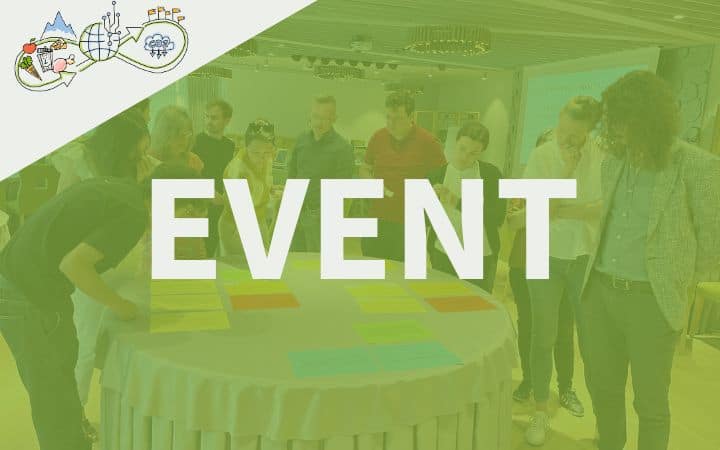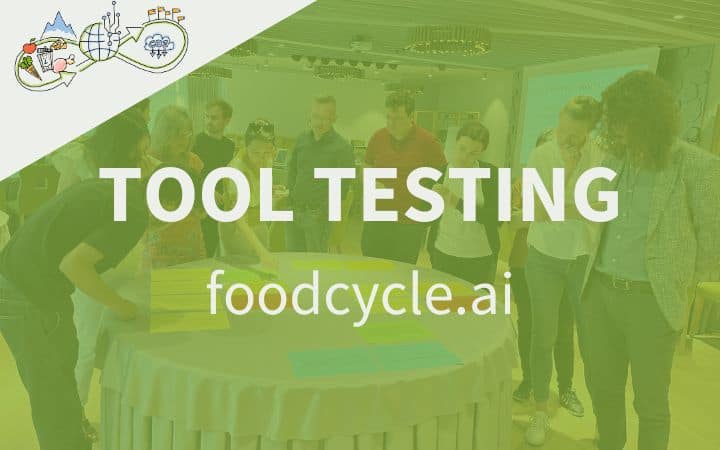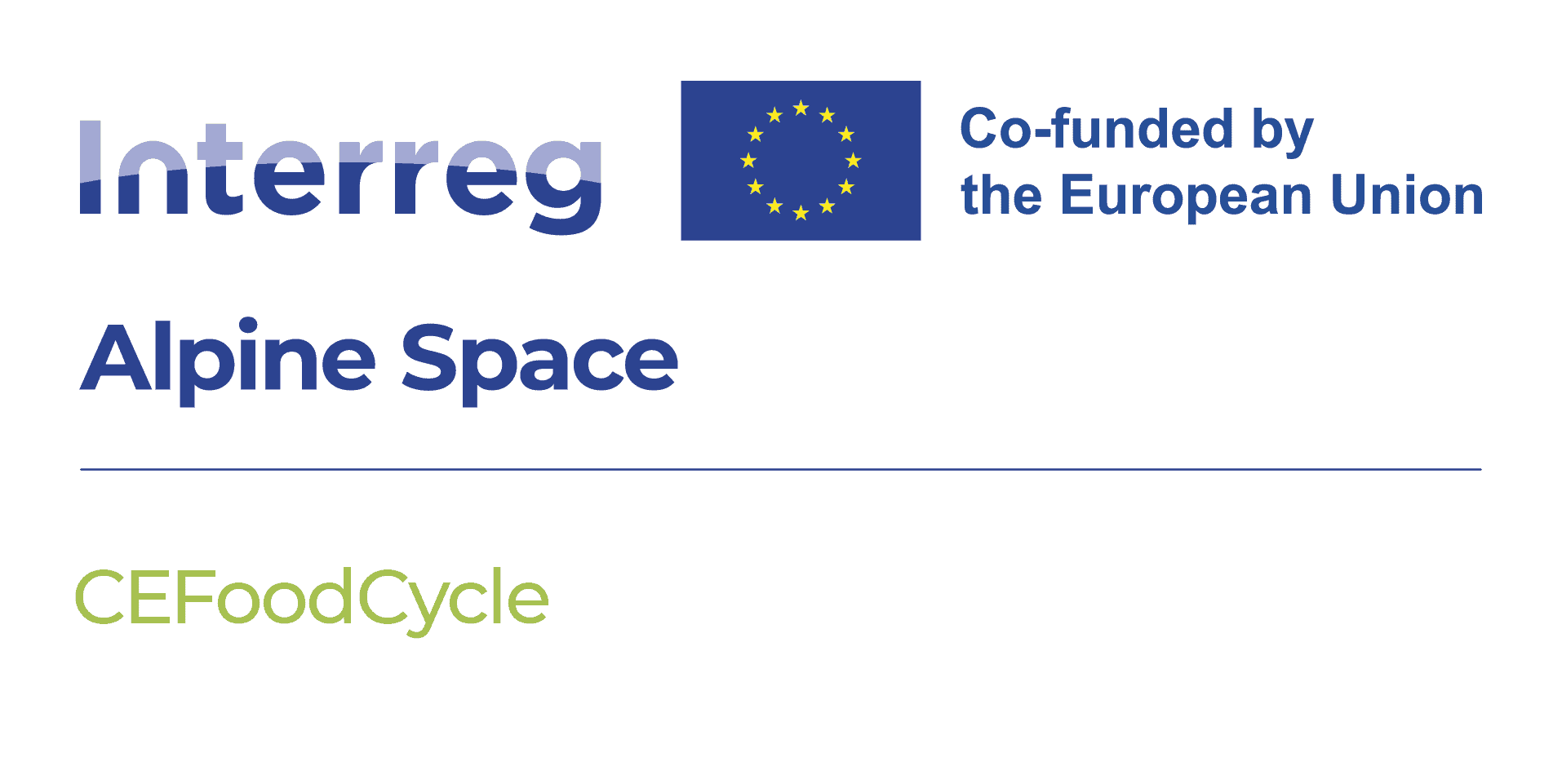
Overview
To tackle food waste, for instance in the hospitality sector, there is a great potential for resource related to food overproduction or packaging. The overall objective is the implementation of Circular Economy Hubs in the food sector in five alpine pilot regions to identify potentials for food waste and CO2 reduction. The involved actors benefit from know-how transfer, networking as well as the use of a digital, intelligent decision support system based on Life-Cycle-Assessment indicators. The activities are aimed at directly and indirectly involved stakeholders in food cycles such as manufacturing companies, trading companies, the hotel industry, but also energy providers. The project will enable different stakeholders to take into account resource and CO2 savings and strengthen sustainable and circular economic competitiveness in the Alps.
CEFoodCycle | Project presentation video
CEFoodCycle | Circular Food Hubs
We are delighted that our five Circular Food Hubs are up and running. The Circular Food Hubs are role models for regional circularity. They operate as transnational and interdisciplinary network in five Alpine Space regions:
- Cicular Food Hub Salzburg-Bavaria (Austria/Germany)
- Circular Food Hub Alto Adige (Italy)
- Circular Food Hub Lamoro (Italy)
- Circular Food Hub France (France)
- Circular Food Hub Gorenjska (Slovenia)
Circular Food Hubs acquire, educate and supervise stakeholders in the defined food streams to close food cycles and facilitate sustainable decision making. Activities such as workshops or hackatons enhance awareness among stakeholders to reduce and avoid food waste and to find innovative closed food cycle solutions. Further information can be found on the regional websites of the Circular Food Hubs.
Factsheet
- 2021 – 2027
- Carbon neutral and resource sensitive Alpine region
- SO 2.2 - Promoting the transition to a circular and resource efficient economy
-
- AG6 Natural resources
- 11/2022
- 10/2025
- 2.386.438 EUR
- 1.789.828 EUR
Partners
- 47.72412113.086338
- 48.200280816.3453075
- 46.41779384999999515.874825928236131
- 43.704157.275177637275622
- 46.246576514.3644724
- 43.30567315.444226820336164
- 44.90223978.2071723
- 46.497845311.3534085
- 48.1535903511.553143192240475
- 48.4005549510.933246443146322




























Outcomes
-
Alpine-wide methodology of LCA indicators in defined food streams
DownloadConsolidation of already existing LCAs to track ecological and C02 implications of food production, distribution and waste, leading to the development of a comprehensive and replicable LCA methodology to assess food streams in defined food product categories. Regional specifics are considered, stakeholders inside and outside the respective food streams identified in order to close food cycles. Provides the baseline for AS common methodology implementation for piloting closed food cycles. -
Establishment of Circular Food Hubs
This output is devoted to exploiting the project results/ achievements. Exploitation plan is produced in the first year and is constantly updated during the course of the project to ensure that the results of the project and the relevant associated initiatives are successfully conveyed to the appropriate stakeholders, to the public and international community. A main focus is also laid on the appropriateness of information for local users (language, accessibility, pre-information). -
User-friendly Intelligent Digital LCA Service System (IDLCASS)
IDLCASS is an AI-powered platform that evaluates and measures food resource impact on CO2 emission throughout food streams based on existing and newly collected data. Data analytics in food waste and re-use potential help moving towards closed food cycles and reap best decisions in terms of quality and reliability. IDLCASS is based on a secure software to protect IP and user data. Integration of tool chains supports CE-based decisionmaking by integrating stakeholders' own cost structures. -
Pilots of smart, closed food cycles (CEFoodCycles)
Participatory tools such as workshops or innovation labs that allow relevant stakeholders along the defined food stream (within selected product categories) to get to know each other; exchange relevant CE experiences and identify pressure points needed to develop new circular business solutions. Also, in-depth analysis of their business models will allow to identify (digital) information points needed to develop LCA standards and digital operating system. -
Policy Recommendations
Promotion of the use of regional products and waste reduction through capitalization, awareness raising and networking for CE-based solutions and the role of digitization tested in CEFoodCycle pilots. Suggestion of policies for political framing approaches at regional and national levels, based on the results of project pilots, to contribute to a just transition towards circular economy for all stakeholders along the cross-regional food chain. -
IDLCASS Network Established
Participatory processes in each phase of the project favors sustainability of results and outputs beyond the end of the CEFoodCycle project. Stakeholders along the food value stream across countries / local communities are engaged in addressing circular economy and food waste management through a bottom-up approach. By disseminating CEFoodCycle experiences and sharing know-how / results with other regions, municipalities and communities help mutual learning among users and policy makers.
Pilots
-
FlyUp-Cycle: Creating sustainable closed food cycle with the star of insect farming - the Black Soldier Fly (Circular Food Hub Gorenjska)
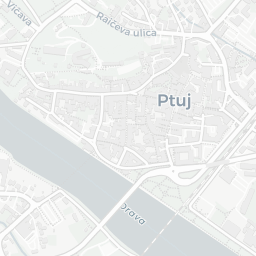




 Short Description
Short Description
The FlyUp-Cycle pilot demonstrates an innovative closed food cycle model in Slovenia, converting organic waste with Black Soldier Fly (Hermetia illucens) larvae into high-quality insect protein and compost-like residues. This pilot aims to reduce food waste, create sustainable supply chains, and promote circular economy practices. By involving multiple stakeholders (supply-business support-demand), including local food producers, waste managers, and feed manufacturers, the project fosters collaboration and showcases the potential of insect farming for ecological and economic benefits.
The primary objective is to develop and test a scalable closed food cycle that reduces food waste and enhances resource efficiency with the support of local partners. This includes:- Converting organic waste into sustainable product (insect protein). This cycle demonstrates efficient waste conversion (15–20 % biomass yield) and produces dried larvae as a high-protein alternative
- Establishing collaborative frameworks among stakeholders to promote circular economy practices.
- Providing policy recommendations to enable the broader adoption of closed food cycles.
- Technology performance: demonstrating the BSF lifecycle, waste conversion processes, and product preparation.
- Stakeholder engagement: workshops, webinars, and interviews to align objectives and share best practices.
- Capacity building: training sessions to educate stakeholders on the technology and circular economy principles.
- Awareness-raising: promotional activities, highlighting environmental and economic benefits.
- Policy development: collecting data and drafting recommendations based on pilot results.
- Supply: bakery (old bread), brewery (spent grain), vegetable cultivation. (waste tomato fruit), agro-industrial plant (maize grits).
- Demand: pet shops with reptiles, national terrariums and vivariums, research institutes.
- Technology provider: Sole trader.
- CEFoodCycle partners:
- E-zavod: Coordinating the pilot's design and implementation, stakeholder engagement, and workshop facilitation.
- BSC Kranj: Supporting local stakeholder mapping and identifying policy implications.
- University of Applied Sciences Salzburg: Providing expertise in circular economy frameworks.
- Cluster of Environmental Technologies Bavaria: Offering technical guidance for scaling and replication.
Preliminary analysis identified possible challenges. To ensure optimal larval growth and maintain high conversion rates under variable substrate conditions, processing partner will utilize advanced BSF farming techniques, pre-tested with diverse organic waste substrates. Regulatory gaps for insect protein use in animal feed will be addressed through collaboration with policymakers to propose evidence-based guidelines.
-
Resch & Frisch: Revalorising baked goods (Circular Food Hub Salzburg-Bavaria)
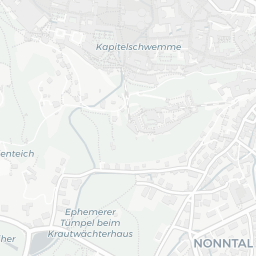



 Short description
Short description
The Austrian bakery Resch&Frisch operates a total of 22 bakery shops in Upper Austria and Salzburg and produces deep-frozen products for home-delivery and the out-of-home market in Austria and Germany. Around 15,000 tonnes of baked goods are produced (at the main production site in Gunskirchen) every year, the reject-rate amounts about 5 %. Whilst in other parts of Austria the transfer of surplus goods has already been organised (e.g. transfer to charitable organisations), this has not been realised for the shops in the Salzburg area.
Aims
The aim is to find solutions both for substandard products on the one hand (stemming from production errors), and surplus food on the other hand (products that were not sold). Top priority being to reuse the food for human consumption, the establishment of new partnerships (co-operations to pass on food) will be explored. Since baked goods turn stale rather quickly, timing and logistics are expected to be the main challenges faced, both for production surpluses as well as for unsold goods from the shops. Waste sorting analyses in the Salzburg shops will provide baseline data to track progress made in the course of the piloting partnership. Moreover, the tool developed in the project, foodcycle.ai, will be tested.
CEFoodCycle project partner involvement
The pilot Resch&Frisch will be supported from Fachhochschule Salzburg GmbH and Österreichisches Ökologie-Institut. -
From Waste to Nourishment: An Innovative Circular Approach (Circular Food Hub Piemonte)


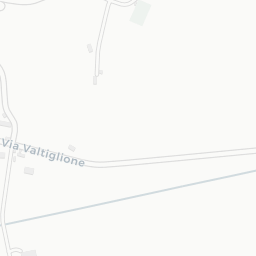


 Objectives:
Objectives:
The project’s objectives include promoting sustainable practices by recycling unsellable food to nourish black soldier fly larvae, which in turn enhances the nutritional and protein content of eggs through the use of insect meal instead of traditional soymeal. It aims to support animal welfare by reducing stress and conflicts among hens through a more natural diet.
Additionally, the project fosters a circular economy by transforming agricultural by-products into valuable resources, minimizing waste. It seeks to educate consumers about the traceability and benefits of sustainably produced eggs while providing farmers with a healthy, cost-effective alternative to conventional feed. Furthermore, the initiative promotes local production and commercialization of egg products derived from a sustainable supply chain, ultimately helping farmers reduce feed costs while increasing the commercial and qualitative value of their products.
Cycle Description/Partner Companies:
The cycle involves establishing local Bugsfarms, which serve as organized networks for breeding black soldier flies. These farms play a crucial role in creating sustainable and participatory agro-industrial supply chains.
Initially, the flies lay eggs, which hatch into larvae. These larvae are then fed a plant-based diet made from food waste for 14 days. During this period, the larvae can grow up to thirty times their initial volume, effectively converting the organic waste into valuable biomass.
At the end of this bioconversion process, the larvae are classified as a raw material under European legislation, allowing them to be sold live or processed further. This cycle not only maximizes resource efficiency but also supports the local economy by integrating waste management with sustainable food production.
Formal partner companies involved are BEF Biosystem and Fantolino, but other companies have been involved and they are:- Agricultural By-Product Suppliers: Companies that produce or manage food waste, such as fruit and vegetable processors, bakeries, or grocery chains, can provide the raw materials needed for feeding the larvae.
- Nutritional Research Institutions: Collaborations with universities or research institutes can enhance the scientific understanding of the nutritional benefits and efficacy of the feed (for example Università di Scienze Gastronomiche di Pollenzo, CN)
- Food Processing Companies: Businesses involved in the production of eggs or egg-based products may be interested in sourcing sustainable feed for their poultry operations.
Support the supply chain in identifying strengths and weaknesses and in overcoming obstacles to the establishment of a closed loop system. Develop business models and relational diagrams that enable the identification of possible solutions for the creation and promotion of this and other closed loop supply chains. Collaborations with agricultural by-product suppliers and insect farming enterprises are integral, as well as partnerships with research institutions to enhance nutritional outcomes. Education and outreach efforts will raise awareness among consumers and producers about the benefits of this sustainable system. Overall, these activities aim to create a functional and scalable model that promotes sustainability and efficiency within the supply chain.
Challenges/Solution:
The main challenges in closing the supply chain include logistical costs, as managing transportation and storage efficiently is crucial; high logistics costs can significantly impact profitability. Ensuring a steady flow of large quantities of recovered waste is essential for offsetting these costs. Infrastructure limitations pose another challenge, as the lack of adequate facilities for processing and transforming waste can hinder operations and scalability.
Regulatory hurdles also present difficulties, as navigating complex and restrictive regulations regarding the use of insects as feed can create barriers to entry and slow down progress. Additionally, gaining market acceptance can be challenging, particularly among consumers and producers who may have cultural biases against using insects as a food source.
There is often a lack of education and awareness about the benefits of closed-loop systems, which can reduce participation and interest among stakeholders. Access to competitive markets and establishing suitable distribution channels can further complicate the situation. Finally, fluctuations in the quality of raw materials can affect the consistency and reliability of the final products.
Addressing these challenges requires a coordinated approach among all stakeholders in the supply chain to develop effective solutions and strategies. -
Fructus Meran (Circular Food Hub Südtirol - Alto Adige)
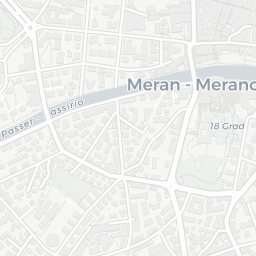




 Short description
Short description
Fructus Merano is supplied by over 800 fruit and organic farmers with fresh, sun-ripened fruit from selected growing areas in South Tyrol and northern Italy. Modern technology and well-trained employees process the raw materials into a high-quality end product. Fructus Meran is one of the leading European producers of stewed apples, stewed pears and frozen fruit.
Aims
Frucuts Meran currently sells its by-products to local food processors. 2025 has set itself the task of processing by-products such as apple cores and apple peel, which often remain unused in food production, into innovative and value-adding products.
CEFoodCycle Partner involvement
The Circular Food Hub South Tyrol IDM Südtirol - Alto Adige) links Fructus Meran with the Laimburg Research Centre, which subjects the by-products to a microbiological analysis in order to define the specific nutrients and decide which innovative product they can be converted into.
Creative processing techniques are used, for example, to turn apple seeds and peels into high-quality natural flavours, nutrient-rich extracts or innovative ingredients for the food, cosmetics and health sectors. In this way, Fructus Meran contributes to the reduction of food waste and a more sustainable use of resources.
-
Eggernudel (Circular Food Hub Südtirol - Alto Adige)




 Short description
Short description
The Eggerhof farm is located in Aldein at 1200 metres above sea level. Mr. Gruber runs a chicken farm with 8000 chickens. Healthy eggs can also be used to make high-quality egg pasta. The trained chef Erich Gruber has specialised in this craft and produces the best egg pasta in the ‘Eggerhof’ pasta factory. The ingredients are carefully selected and mainly free-range eggs and GMO-free durum wheat semolina are used. The addition of colourings and preservatives is deliberately avoided.
Aims
Every Monday, 15,000 second-quality eggs are regularly incorporated into the pasta dough. The eggshells are currently collected in a container and disposed of. Egg shells make up 10% of the weight
Eggshells consist of 90% calcium. Due to their high calcium content of 90%, eggshells are very valuable and can be used to make interesting products in a wide range of industries. Mr Gruber would like to return eggshells to the value chain and develop an innovative product. -
Closed Food Cycles in Nice (Circular Food Hub Alpes Maritimes)
Download




 The "Piloting Closed Food Cycles" initiative aimed to introduce a sustainable bio-waste collection system in Nice city centre to help cafés, hotels, and restaurants (CHR) comply with new environmental regulations. Initially, the project planned to trial bio-waste collection using an electric cargo bike. However, due to logistical and regulatory challenges, for now, the trial could not be carried out as intended.
The "Piloting Closed Food Cycles" initiative aimed to introduce a sustainable bio-waste collection system in Nice city centre to help cafés, hotels, and restaurants (CHR) comply with new environmental regulations. Initially, the project planned to trial bio-waste collection using an electric cargo bike. However, due to logistical and regulatory challenges, for now, the trial could not be carried out as intended.
In response, the focus of the piloting action was redirected towards raising awareness among CHRs in the Alpes-Maritimes about the importance of sorting, collecting, and recycling bio-waste. Through stakeholder engagement, information meetings, and educational materials (webinars, workshops, microlearning capsules…), the initiative now prioritizes supporting restaurant owners in understanding and preparing for bio-waste management regulations.
Key objectives include:
• Educating CHRs on the environmental and economic benefits of bio-waste recycling.
• Facilitating compliance with new waste management regulations.
• Encouraging long-term adoption of sustainable practices.
By shifting towards an awareness-driven approach, this initiative strengthens collaboration between local stakeholders and lays the groundwork for future sustainable food waste management solutions in the region.
-
Upcycling HORECA Sector Waste into High-Value Products
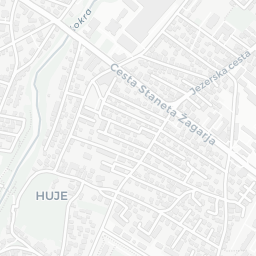



 Short Description:
Short Description:
The UpCycle pilot demonstrates an innovative solution for the HORECA sector (Hotels, Restaurants, Catering) to transform unavoidable food waste into valuable products through circular design. By upcycling apple pomace and coffee grounds, this initiative creates zero-waste cosmetics (e.g., shampoo, soap) and bio-based materials (e.g., apple leather for jewelry, book covers). The project educates stakeholders on circular economy practices, fosters collaboration across supply chains, and promotes sustainable alternatives to plastic and animal leather.
Key Objectives:- Upcycle unavoidable HORECA waste into high-value ingredients (e.g., coffee grounds for cosmetics, apple pomace for biodegradable leather).
- Build collaborative frameworks among chefs, farmers, designers, and policymakers to advance circular economy principles.
- Develop scalable solutions and policy recommendations to enable organic waste reuse beyond traditional disposal (e.g., anaerobic digestion).
Key Activities:- Technology Demonstration:
- Convert apple pomace into biodegradable leather.
- Transform coffee grounds into natural exfoliants for cosmetics (replacing microplastics).
- Stakeholder Engagement:
- Interactive workshops, webinars, and interviews with tourism educators, chefs, and designers.
- Capacity Building:
- Training sessions on circular design, waste valorization, and supply chain collaboration.
- Awareness Campaigns:
- Promote environmental/economic benefits of upcycling via case studies and social media.
- Policy Advocacy:
- Draft recommendations to reclassify organic waste as a resource for industrial use.
Stakeholders Involved:
Role
Partners
Supply
Hotels (coffee grounds), farmers (apples), cosmetic producers (zero-waste products).
Demand
Cosmetics sector (microplastic alternatives), designers (apple leather for jewelry/decor).
Technology Providers
WIT – Waste Into Treasure
CEFoodCycle Partners
BSC Kranj, E zavod
Videos
Gallery
Downloads
-
REPORT: This review provides a concise introduction and overview on Life Cycle Analysis (LCA) Studies on food waste and food products. The respective methodologies are explored and compared. (part of Output 1.1)Download
-
REPORT: To assess the different practices and contexts within agricultural systems, relevant for environmental footprinting, a comparison of national and regional data was conducted as part of the project CEFoodCycle. While previous studies have highlighted the global significance of food waste and the multiple benefits of transitioning to a Circular Economy, there is a lack of detailed analysis focusing on how regional variations in the food value chain impact LCA metrics within the Alpine region. Part 1 focuses on Agriculture. (part of Output 1.1)Download
-
REPORT: To assess the different practices and contexts within agricultural systems, relevant for environmental footprinting, a comparison of national and regional data was conducted as part of the project CEFoodCycle. While previous studies have highlighted the global significance of food waste and the multiple benefits of transitioning to a Circular Economy, there is a lack of detailed analysis focusing on how regional variations in the food value chain impact LCA metrics within the Alpine region. Part 2 focuses on Processing and Retail. (part of Output 1.1)Download
-
REPORT: This whitepaper is written with the intent to convey key insights into strategies to minimise food waste and to understand the key stake-holders in the food value stream in the participating countries. Based on a desk research phase between January and November 2023, some key figures are presented regarding the food market structure in the Alpine Region. Furthermore, best practices of companies that use food waste as a resource are presented and circular food hubs shortly introduced.Download
-
REPORT: The survey conducted among establishments in the coffee-hotel-restaurant (CHR) sector between February 26 and March 15, 2024, aimed to provide more accurate estimates of biowaste production by enhancing the understanding of operational activities. It also sought to highlight notable practices in biowaste management and recovery, as well as to identify the challenges and constraints associated with implementing biowaste recovery initiatives.Download
-
PRESENTATION: This presentation looks at artificial intelligence and circular innovation and shows the status quo of B2B platforms in agri food settings and their regions of operation. as of: December 2023 (part of Output 2.1)Download
-
EDUCATION MATERIAL: These circular economy icons, cards and best practice cards, developed as part of the CEFoodCycle project, serve as versatile educational tools for workshops and training sessions in the field of circular economy, particularly in the food system. They can be used to create cards or visual aids representing specific topics (e.g., legal frameworks, technological barriers) or stakeholders (e.g., farmers, manufacturing companies). These materials are ideal for interactive activities such as role-playing exercises, discussions on implementation challenges, and brainstorming solutions, fostering a deeper understanding of the complexities and opportunities within circular economy systems. (part of Output 1.2 & Output 3.3)Download
More
Submission Form
Information Sheet
Project calendar
